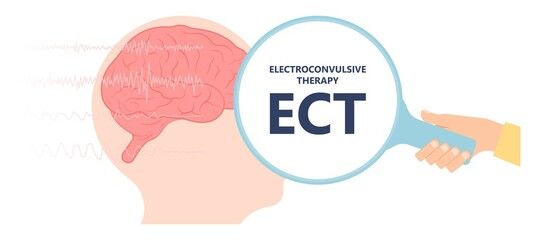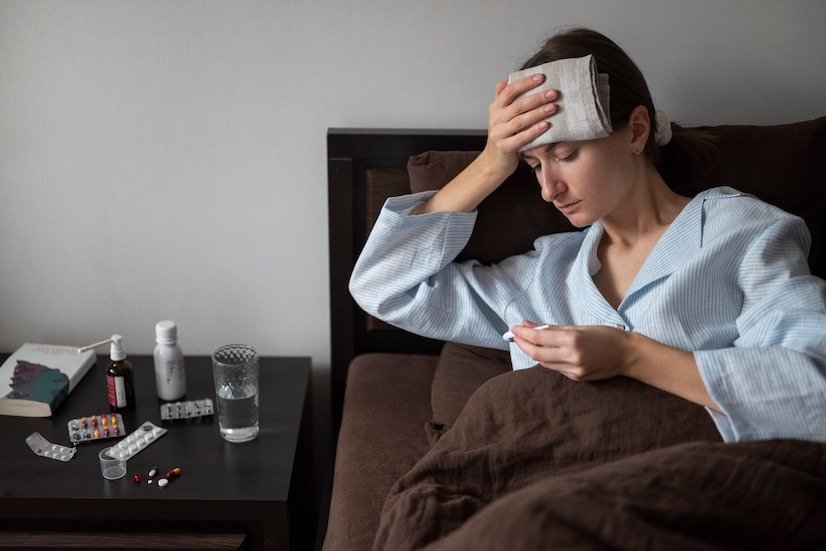Overview
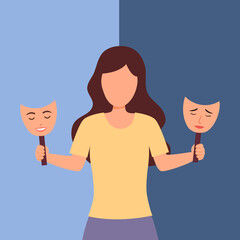
We all go through mood swings in our daily lives! A traffic jam on the way to work, an argument with a colleague pisses us off. Whereas getting to eat our favorite chocolate or a surprise from our friend uplifts our mood suddenly, doesn't it?
Such ups and downs in mood is so relatable to all of us, right?
We all go through such ups and downs and experience such mood shifts! It is completely normal! But all mood swings are not normal!
Do you experience frequent and intense mood swings or experience periods of intense mania, where you feel overly energetic, impulsive, and euphoric, followed by episodes of deep depression, where you feel hopeless, sad, and withdrawn?
Then it is likely you are suffering from bipolar disorder!

Bipolar disorder, also called manic depression, can lead to dramatic shifts in a person’s mood and energy levels. It may affect their daily lives. Those with bipolar disorder experience episodes of intense mania where they feel very energetic and euphoric followed by episodes of severe depression where they feel hopeless and lonely! It is very challenging to live with this condition as it hinders us from living a normal and happy life!
Tensed after reading all this? Don’t worry! You are not alone!
An estimated 4.4% of U.S. adults experience bipolar disorder at some time in their lives. Yes, even adults suffer from bipolar disorder!
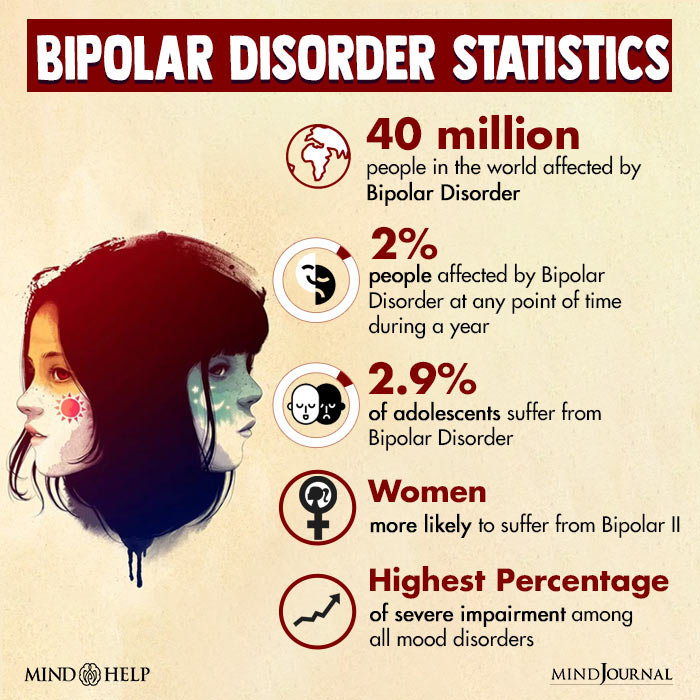
But there’s good news!
With proper treatment and management, you can manage bipolar disorder and lead a happy and fulfilling life!
This article discusses the management techniques of bipolar disorder in adults.
But before we come to that, first let us understand the problem, its types, symptoms, causes and diagnosis!
After all, isn't awareness and understanding of the problem a crucial step towards the right solution?
So, we help you take that crucial step by discussing everything you need to know about bipolar disorder in adults!
First, let’s discuss,
Types of bipolar disorder in adults
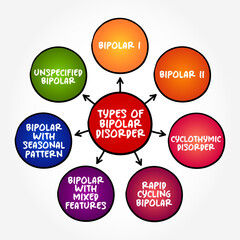
Did you know that adults can have different types of bipolar disorder?
| Type | Details |
| Bipolar I Disorder |
|
| Bipolar II Disorder |
|
| Cyclothymic Disorder: |
|
Often the solution lies in understanding the cause of the problem!
So, let's understand what causes bipolar disorder in adults.
Causes of bipolar disorder in adults
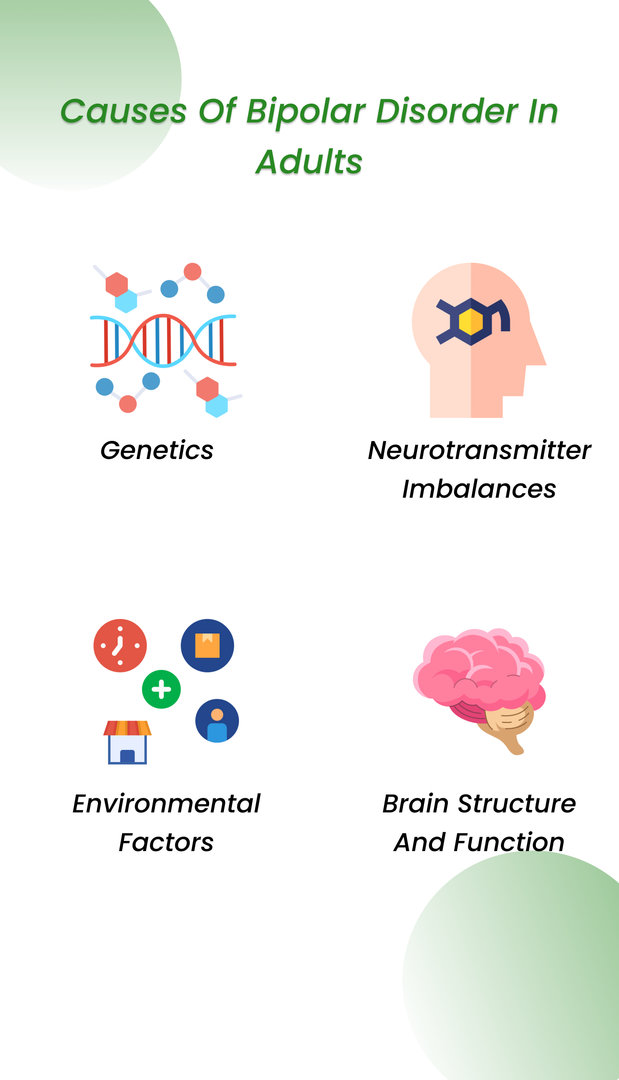
The exact cause of bipolar disorder is not yet known. But studies suggests, some factors may contribute to bipolar disorder in adults which are as follows-
- Genetics:
Does your mother, father or anyone in your family have bipolar disorder? Yes, it is believed that bipolar disorder often runs in families and has a genetic component.
- Neurotransmitter imbalances:
Sometimes, imbalances in certain neurotransmitters that are responsible for regulating our mood like dopamine and serotonin, can lead to the development of bipolar disorder in adults.
- Environmental factors:
Stressful events, trauma, and life changes can also trigger bipolar disorder in adults. Certain medications may also increase the risk of bipolar disorder.
- Brain structure and function:
Studies suggest that structural and functional abnormalities in specific regions of the brain, especially those responsible for emotion regulation can trigger bipolar disorder in adults.
Further talking about what triggers bipolar disorder in adults, Dr. Zeeshan Afzal, MD; who works for Welzo and has a background in clinical science with extensive experience in bipolar disorder adds,
“Bipolar episodes can be triggered by various factors, such as stressful life events, changes in sleep patterns, substance abuse, hormonal changes, and medication changes. It is important for individuals with bipolar disorder to work with their healthcare provider to identify and manage potential triggers.”
How do you know whether you have bipolar disorder or it is just a normal mood swing?
There are some signs and symptoms that can help you identify a bipolar disorder!
Signs and symptoms of bipolar disorder in adults
Some bipolar symptoms in adults are as follows-
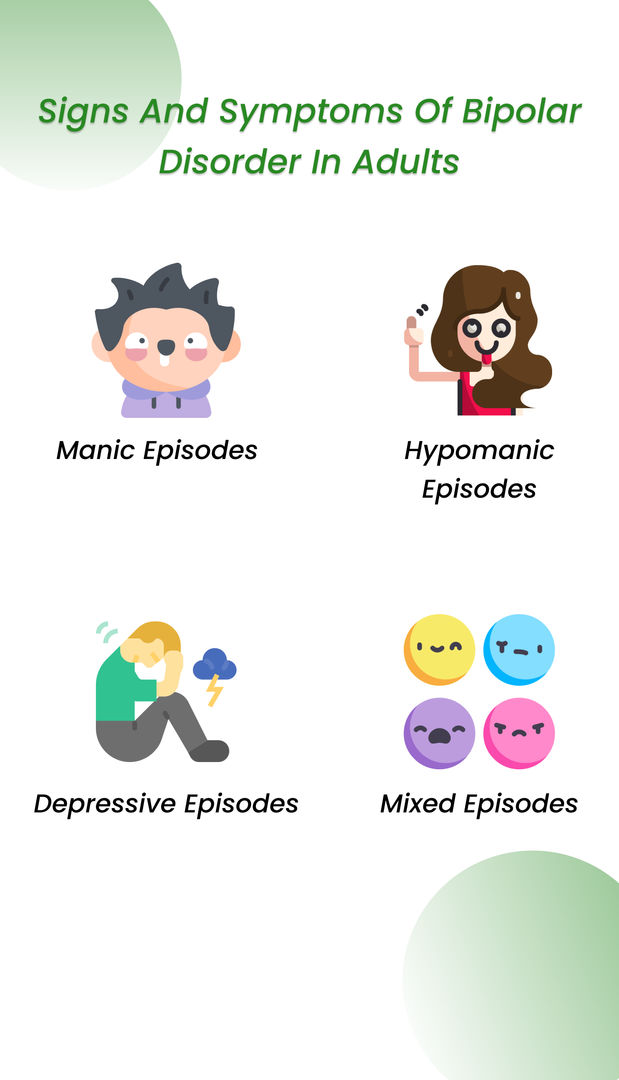
- Manic episodes:
These are characterized by high energy levels, periods of irritated or elevated moods, decreased sleep, racing thoughts, impulsive behavior etc.
- Hypomanic episodes:
These are just like manic episodes but are less severe compared to manic episodes.
- Depressive episodes:
These are characterized by low energy and activity levels, hopelessness and sadness. One may experience difficulty in concentrating, changes in appetite and sleep patterns, and thoughts of harm and suicide.
- Mixed episodes:
These are a mix of mania and depression symptoms and may include racing thoughts, irritability and suicidal thoughts.
Can you relate to any of the above signs and symptoms and suspect that you have bipolar disorder?
Then do not waste any time and get yourself immediately tested for bipolar disorder!
Diagnosis and bipolar test for adults
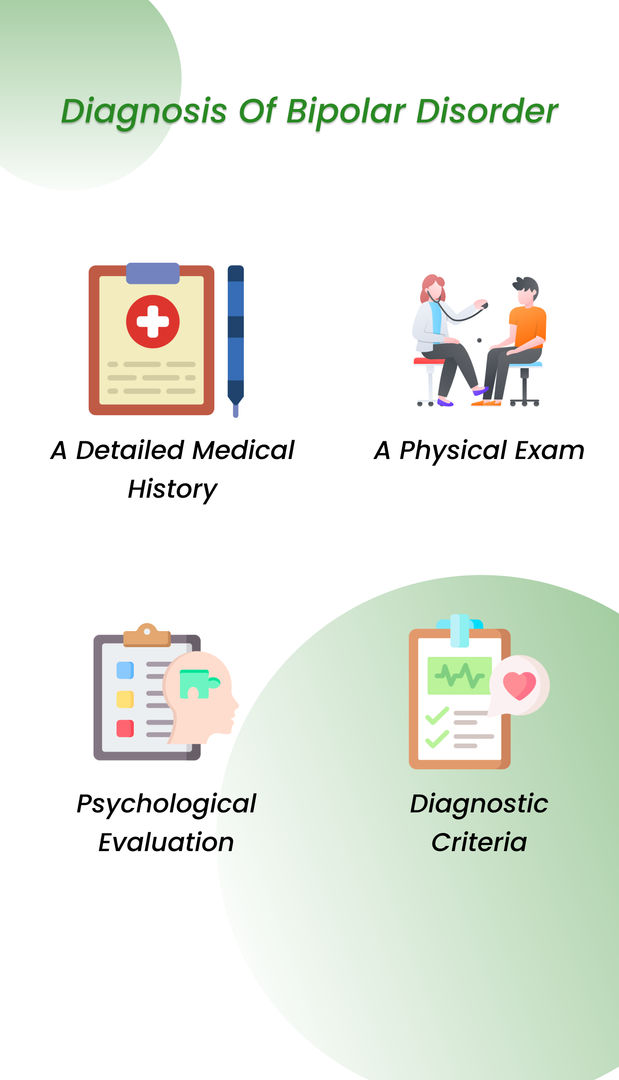
For proper diagnosis of bipolar disorder, it is important to seek help from a medical professional such as a psychologist or a psychiatrist. They may use evaluation methods such as follows for diagnosing bipolar disorder in adults.
- A detailed medical history:
The medical professional will ask you about the symptoms you are experiencing, your medical history and whether anyone in your family has bipolar disorder or some other mental health condition etc.
- A physical exam:
You may be asked to undergo some physical tests to rule out any medical conditions that could be contributing to the symptoms.
- Psychological evaluation:
Certain psychological tests may be carried out to understand your mood, behavior and thought patterns.
- Diagnostic criteria:
The Diagnostic and Statistical Manual of Mental Disorders (DSM-5) can be used to know whether you have bipolar disorder or not.
On reading this, did your mind come up with a doubt, “Can bipolar disorder be misdiagnosed?”
Well, according to Courtney Hubscher, a Licensed Mental Health Therapist at GroundWork Counseling in Florida,
“Bipolar can often be misdiagnosed as anxiety, depression, or psychosis among other things. Its important to seek a thorough evaluation with a trained professional in order to receive the correct diagnosis. A correct diagnosis can lead to receiving the correct type of therapy and medication to help mitigate the symptoms of bipolar disorder.”
What happened? Are you diagnosed with bipolar disorder?
Do not lose hope! As there are various effective treatments to manage bipolar disorder in adults!
Believe us, the next section is sure to replace the darkness of despair in your life with a new light of hope!
Bipolar treatment in adults
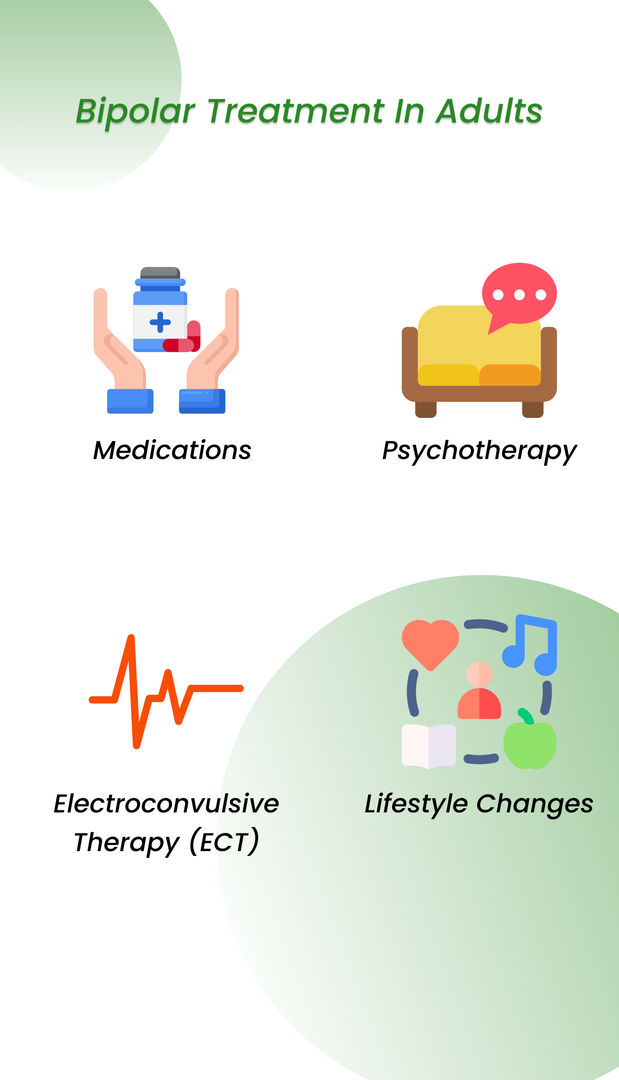
There are various effective treatment options available to manage bipolar disorder in adults. They help to reduce the symptoms of bipolar disorder and help you to live a normal and fulfilling life. They improve the overall quality of your life!
We know after reading this, you must be excited to learn about these effective treatment options for bipolar in adults!
The below table mentions some of the effective and promising treatment options for managing bipolar disorder in adults.
| Treatment | Details |
Medications |
|

Psychotherapy | Psychotherapy such as CBT( cognitive behavioral therapy) can help adults with bipolar disorder manage their symptoms, and help them develop better coping strategies and improve their interpersonal relationships. |
Electroconvulsive therapy (ECT) |
|
Lifestyle changes: | Lifestyle changes such as following a healthy diet, exercising regularly and engaging in activities that help manage stress like yoga and meditation, can help reduce the signs of bipolar in adults and can help them lead a better quality of life. |
Please note, treatment for bipolar disorder is long-term and one may need to try different treatments to find the treatment option that is the perfect for them. So, it is important to work with an experienced psychologist or a psychiatrist to develop a treatment plan that works best for your individual condition.
For some reason, are you thinking of ignoring your symptoms and leaving them untreated?
Please don’t!
The below section will answer the why behind it!
What if bipolar disorder in adults is left untreated?
Undiagnosed or untreated bipolar disorder can have serious consequences on the overall quality of your life.
Some of the negative consequences of untreated bipolar disorder are as follows-
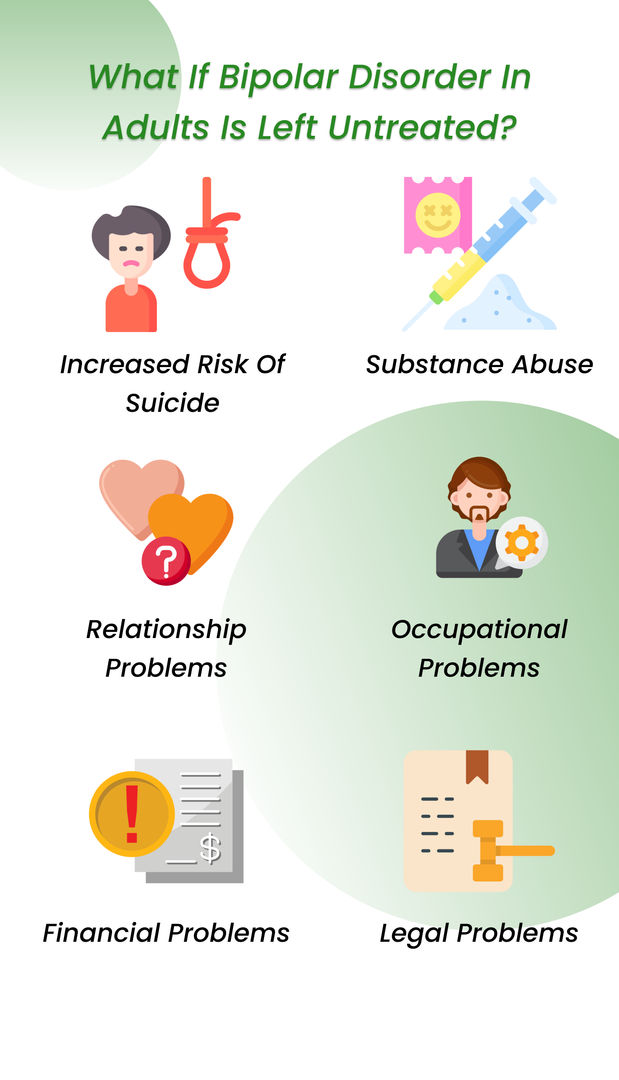
- Increased risk of suicide
- The symptoms of bipolar disorder and extreme mood swings can ruin relationships with friends and family.
- The symptoms of bipolar disorder can also have a negative impact on work life.
- Adults with untreated bipolar disorder can engage in risky and impulsive activities that can cause legal problems.
And thus, it is essential to get proper and timely treatment for bipolar disorder to avoid the above negative consequences!
Are you one of those who believe in “ Prevention is better than cure” and looking for ways that can help reduce the risk of bipolar disorder?
Then do not miss reading the below section!
How to prevent Bipolar disorder in adults?
It is difficult to prevent bipolar disorder in adults, but there are some effective ways that can help reduce the risk of bipolar disorder in adults.
They are as follows-

- Following a healthy lifestyle, like eating healthy, getting a proper sleep and exercising regularly can lower the risk of bipolar disorder.
- Stressful events are known to increase the risk of bipolar disorder in adults. So, learning to cope with them by following certain stress management techniques like yoga and meditation can help reduce the risk of bipolar disorder.
- Are you diagnosed with mental health conditions such as anxiety or depression? If yes, it is important to seek proper treatment for it to reduce the risk of bipolar disorder. As mental health conditions such as depression or anxiety disorders can increase the risk of bipolar disorder.
- Avoid taking drugs and alcohol.
So, what are you thinking?
Now is the time to win the battle against bipolar disorder and live a normal, happy and a fulfilling life by using the management strategies stated in the article that act like powerful weapons!
Have some more questions related to bipolar disorder in adults?
Then do not miss reading the below FAQs.
You might get an answer to your question!
FAQs

- Is bipolar disorder in adults permanent?
Bipolar disorder is a mental health condition that is characterized by episodes of manic and depressive symptoms. While it is a chronic condition that typically lasts a lifetime, it is important to note that bipolar disorder can be effectively managed with proper treatment.
- Can bipolar disorder be permanently treated in adults?
Bipolar disorder is a chronic and complex mental health condition that requires ongoing management. While there is no permanent cure for bipolar disorder, with proper management, many people with the condition are able to live fulfilling and productive lives.
- Can bipolar disorder in adults relapse?
Yes, bipolar disorder in adults can relapse, which means that an individual who has previously experienced symptoms of bipolar disorder may experience a recurrence of those symptoms after a period of remission.
Bipolar disorder is a chronic condition that requires ongoing management, and even with treatment, there is always a risk of relapse. Factors that may increase the risk of relapse include stress, substance abuse, medication noncompliance, and life changes such as a major life event or significant stressor.
- What are some symptoms of bipolar disorder in females?
Bipolar disorder is a mental health condition that affects both males and females. However, the symptoms and experiences of bipolar disorder may differ between genders. Some common bipolar disorder symptoms that may be more commonly experienced by females include rapid mood swings, depressive episodes, irritability, sleep disturbances, etc.
References:
https://www.nimh.nih.gov/health/statistics/bipolar-disorder
https://screening.mhanational.org

